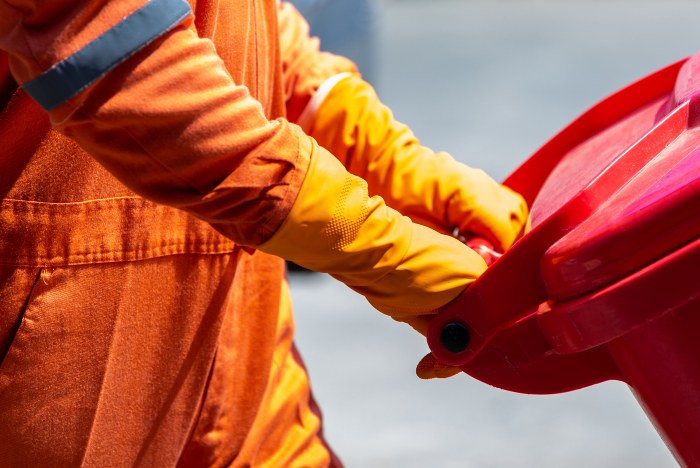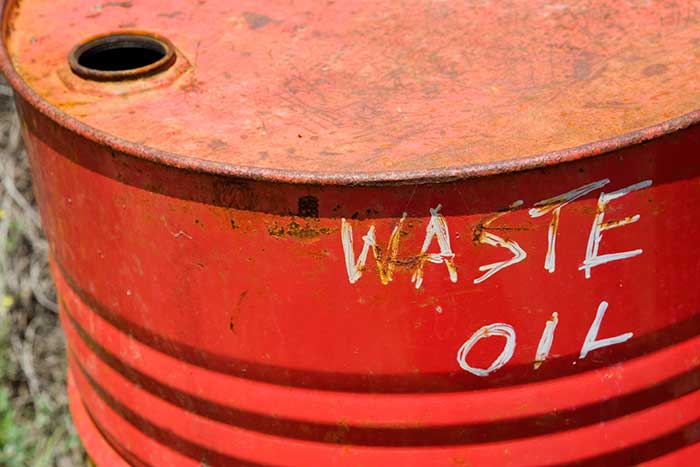Commercial Hazardous Waste Disposal Across America
Navigating Commercial Hazardous Waste Disposal for Your Business
Managing hazardous waste is a significant responsibility for any business. To ensure safety and efficiency, you should elicit the help of CG Environmental, an EnviroServe Company. Whether you run a small workshop or a large manufacturing plant, dealing with dangerous materials requires special care and attention. Our hazmat company near you has decades’ worth of experience profiling, collecting, transporting, and disposing of all types of commercial hazardous waste. We understand the complexities and potential dangers of hazardous waste management, and we’ll help you navigate the process effectively. Learn more about how below.
We Are Your Hazardous Waste Management Experts
Experience matters when you’re dealing with hazardous waste materials. They come in numerous forms and are present throughout many businesses. So, you need an industry expert that specializes in environmental cleaning services. Our team fits that bill. We can manage and dispose of hazardous materials safely and efficiently to protect you, your neighbors, and the environment.
Our team has an encyclopedic understanding of the regulations surrounding hazardous waste management. We stay current with all the latest industry standards and will ensure your business remains compliant. When you work with CG Environmental, an EnviroServe Company, you can rest assured your hazardous materials are in safe, reliable hands.
Understanding Hazardous Materials Removal
Accidents happen. When they involve hazardous materials, quick and effective action is critical. That’s why the CG Environmental, an EnviroServe Company, team offers emergency response services to contain and clean up hazardous material spills at facilities nationwide. We are trained to handle a wide range of hazardous substances, so we can effectively manage these spills with minimal disruption to your operations.
Our team uses advanced equipment and specialized techniques to safely remove all hazardous materials. Whether you’ve had a small spill or a large incident, we’ll make every effort to mitigate risks and restore safety as quickly as possible. You can trust us to be there when you need us most.

What to Do After a Commercial Hazardous Materials Spill
If a commercial hazardous material spill happens at your business, your priority should be the safety of all personnel. If necessary, you should evacuate the affected area. Next, contact CG Environmental, an EnviroServe Company, to initiate a professional spill response. We’ll quickly assess the situation and take appropriate containment measures.
Please don’t try to handle a hazardous spill on your own. Doing so could be dangerous and lead to further complications. Rely on our expertise to manage the situation and ensure compliance with environmental regulations. We’re here to support you every step of the way.
Items We Safely Dispose and Why It’s Necessary
Dozens of everyday items could be considered hazardous materials. Our team is adept at waste profiling and can handle them all safely and efficiently. Among the most common commercial hazardous waste materials you should let us dispose of for you are:
Light Bulbs
Used fluorescent light bulbs and fluorescent tubes contain hazardous materials like mercury that require special handling. Proper disposal prevents these elements from entering the environment.
Old Tires
Tires pose environmental risks when not disposed of properly. Our team can either recycle or dispose of your old tires. When necessary, we’ll split, shred, or quarter them. Regardless, we’ll follow best practices to minimize their impact on the planet.
Latex and Oil-Based Paints
Many paints contain toxic chemicals. Therefore, you should never pour them down a drain or dump them outside. Eventually, they may contaminate the groundwater. You need CG Environmental, an EnviroServe Company, to manage and dispose of these substances safely.
Toxic Liquids
Toxic liquids including solvents, cleaners, pesticides, and bleach need careful handling. We’re equipped to manage these substances and get rid of them in accordance with regulations.
Pool Chemicals
Improper disposal of pool chemicals can lead to water contamination. We’ll ensure that doesn’t happen so that the water in your community is safe and pure. Furthermore, pool chemicals can cause problems when thrown away because they’re flammable and reactionary. We’ll safely dispose of them to avoid dangerous consequences.
Acids and Bases
We neutralize acids and bases to render them harmless. They should never be simply diluted. Our team includes experts in this area, so you will have peace of mind about safety.
Non-Hazardous Household Chemicals
You may think non-hazardous household chemicals are completely safe, but they can still adversely affect the environment. Let us dispose of them responsibly.
Batteries
Many single-use batteries can be thrown away. However, if your batteries are leaking or corroded, they pose safety hazards. We’ll recycle or dispose of them cautiously to avoid environmental risks.
E-Waste
Electronic waste requires special processing to recover valuable materials and prevent pollution. Let us handle your electronics disposal so they don’t end up in local landfills.

You Deserve CG Environmental, an EnviroServe Company’s Expertise
Choosing CG Environmental, an EnviroServe Company, means partnering with a company committed to safety, compliance, and environmental protection. We tailor our services to each client’s unique business needs. While many come to us for commercial hazardous waste management, most can also benefit from our other comprehensive services, including industrial cleaning, vacuum truck services, asbestos removal, and more. Our commitment to environmental responsibility motivates us to provide solutions that minimize waste and promote safety. With extensive experience, we’re a national leader in that pursuit.
Contact Our Exceptional Hazmat Company Today
Don’t leave hazardous waste management to chance. Let CG Environmental, an EnviroServe Company, provide complete solutions that address your hazardous waste disposal needs. Contact us today to get started.